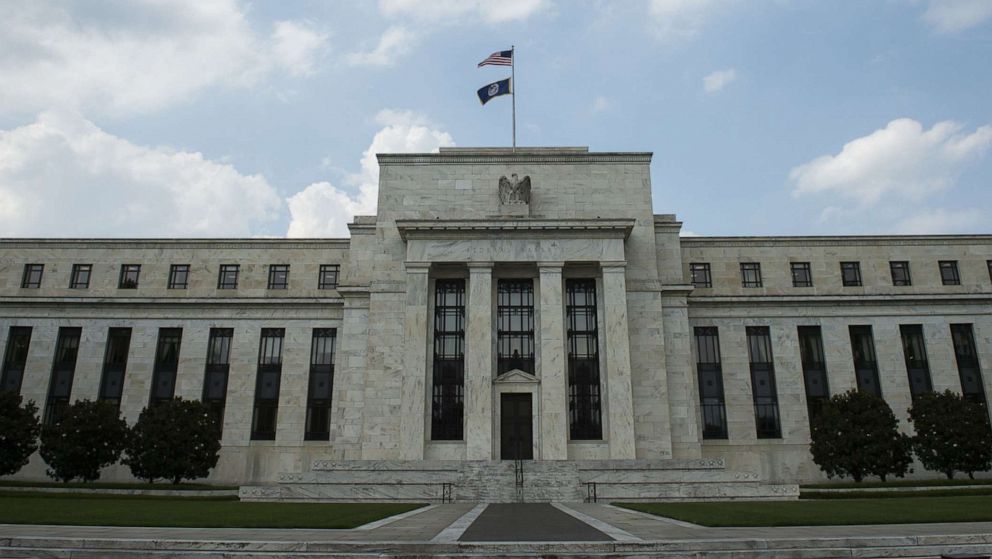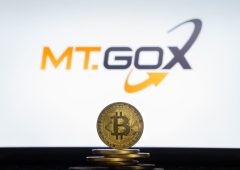New Bill Aims to Disband the Federal Reserve, Citing Economic Instability
07.03.2025 10:00 1 min. read Alexander Zdravkov
Congressman Thomas Massie has reintroduced a bill to abolish the Federal Reserve, blaming it for inflation and economic instability.
His proposal, H.R. 1846, aims to dismantle the Fed’s central banking system, including its Board of Governors and regional branches, ending a century of centralized monetary control.
Massie argues that the Fed’s actions, especially during the COVID-19 crisis, led to the devaluation of the dollar and inflation, burdening Americans.
Senator Mike Lee has introduced a similar bill in the Senate, seeking to curb the Fed’s economic influence. Meanwhile, Massie is pushing for a full audit of the Fed’s activities with his “Audit the Fed” bill, which has support from libertarians, conservatives, and crypto advocates who criticize the Fed’s lack of transparency.
The Fed is also dealing with internal changes, including the resignation of its Vice Chair, Michael Barr, further fueling concerns over its leadership. Trump, a vocal critic, is seeking to limit the Fed’s power, transferring authority to other agencies.
Elon Musk has also criticized the Fed’s size and inefficiency, with his Department of Government Efficiency pushing for a review of its operations. With reform efforts gaining traction, the future of the Federal Reserve is uncertain.
-
1
Chinese Tech Firms Turn to Crypto for Treasury Diversification
26.06.2025 17:00 1 min. read -
2
FTX Halts Recovery Payments in 49 Countries: Here Is the List
04.07.2025 18:00 2 min. read -
3
What Are the Key Trends in European Consumer Payments for 2024?
29.06.2025 8:00 2 min. read -
4
What Brian Armstrong’s New Stats Reveal About Institutional Crypto Growth
29.06.2025 15:00 2 min. read -
5
Here is Why the Fed May Cut Rates Earlier Than Expected, According to Goldman Sachs
08.07.2025 15:00 2 min. read
U.S. Public Pension Giant Boosts Palantir and Strategy Holdings in Q2
According to a report by Barron’s, the Ohio Public Employees Retirement System (OPERS) made notable adjustments to its portfolio in Q2 2025, significantly increasing exposure to Palantir and Strategy while cutting back on Lyft.
Key Crypto Events to Watch in the Next Months
As crypto markets gain momentum heading into the second half of 2025, a series of pivotal regulatory and macroeconomic events are poised to shape sentiment, liquidity, and price action across the space.
Here is Why Stablecoins Are Booming, According to Tether CEO
In a recent interview with Bankless, Tether CEO Paolo Ardoino shed light on the growing adoption of stablecoins like USDT, linking their rise to global economic instability and shifting generational dynamics.
U.S. Dollar Comes Onchain as GENIUS Act Ushers in Digital Era
In a statement that marks a major policy shift, U.S. Treasury Secretary Scott Bessent confirmed that blockchain technologies will play a central role in the future of American payments, with the U.S. dollar officially moving “onchain.”
-
1
Chinese Tech Firms Turn to Crypto for Treasury Diversification
26.06.2025 17:00 1 min. read -
2
FTX Halts Recovery Payments in 49 Countries: Here Is the List
04.07.2025 18:00 2 min. read -
3
What Are the Key Trends in European Consumer Payments for 2024?
29.06.2025 8:00 2 min. read -
4
What Brian Armstrong’s New Stats Reveal About Institutional Crypto Growth
29.06.2025 15:00 2 min. read -
5
Here is Why the Fed May Cut Rates Earlier Than Expected, According to Goldman Sachs
08.07.2025 15:00 2 min. read


